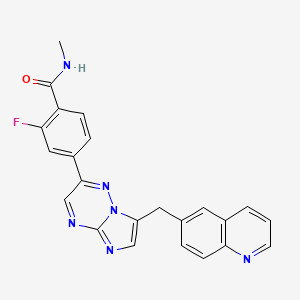Novartis gets FDA nod for Tabrecta to treat metastatic NSCLC with METex14
Novartis has secured approval from the US Food and Drug Administration (FDA) for its Tabrecta (capmatinib) to treat adult patients metastatic non-small cell lung cancer (NSCLC) with MET exon 14 skipping (METex14).
The approval has been granted for Tabrecta, a MET inhibitor, to treat adult patients with NSCLC whose tumours have a mutation, which leads to METex14 as detected by an FDA-approved test.

Expected to be available within a short time, Tabrecta secured approval for first-line and earlier treated patients, regardless of prior treatment type.
Novartis has also secured FDA approval for FoundationOne CDx as the companion diagnostic for Tabrecta to help detect mutations, which lead to MET exon 14 skipping in tumour tissue. Earlier, Novartis secured a breakthrough therapy designation for capmatinib.
The FDA approval of Tabrecta was based on data from the pivotal GEOMETRY mono-1 phase II multi-centre, non-randomised, open-label and multi-cohort study.
The study assessed 97 adult patients with metastatic NSCLC harbouring mutations, which lead to METex14 who were assigned to Cohorts 4 0r 5b, and secured capmatinib tablets 400mg orally twice daily.
According to the company, the confirmed overall response rate was 68% in the METex14 population.
Novartis licenced Tabrecta from Incyte in 2009. Under the deal, Novartis secured worldwide exclusive development and commercialisation rights to capmatinib and certain back-up compounds in all indications from Incyte.
Novartis Oncology president Susanne Schaffert said: “Today, and especially during these difficult times, we are incredibly proud that Tabrecta is the first treatment approved by the FDA specifically to treat patients diagnosed with this aggressive NSCLC associated with METex14.
“In our quest to reimagine medicine, we have worked tirelessly over the past decades to advance the understanding and treatment of NSCLC, striving to make a difference in patients’ lives, one mutation at a time.”
In April, Novartis unveiled plans to begin a phase III clinical study to evaluate canakinumab, an interleukin (IL)-1β blocker, in patients with Covid-19 pneumonia.
The study will assess the efficacy of using canakinumab for the treatment of a type of severe immune overreaction known as cytokine release syndrome (CRS) in people with COVID-19 pneumonia.
7 May 2020
https://www.pharmaceutical-business-review.com/



